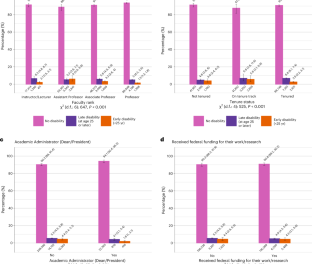
Summary: A new study highlights the varying rates of cognitive decline among different race and sex groups after retirement. White men showed the sharpest decline, while Black women experienced the least.
Surprisingly, individuals who attended college showed a greater decline than those who didn’t. The research suggests that factors such as job opportunities and lifelong structural inequalities may play a role in cognitive aging post-retirement.
Key Facts:
- The study found significant post-retirement cognitive decline in white adults, with white men showing the steepest decline.
- Black women demonstrated the least cognitive decline post-retirement, according to the study.
- Interestingly, individuals who had attended college experienced greater post-retirement cognitive decline than those who did not.
Source: Wiley
A study published in the Journal of the American Geriatrics Society found that immediately after retirement, white adults tended to experience a significant decline in cognitive function, whereas Black adults experienced minimal cognitive decline.
White men showed the steepest post-retirement cognitive decline across sex/race combinations, whereas Black women showed the least decline.
White women performed better cognitively at retirement than other race/sex subgroups, and after retirement, their cognitive functioning declined at a rate that was slightly less than the average for this study.
Results were adjusted for sociodemographics and physical and mental health indicators.
Finally, the study—which included 2,226 US participants followed for up to 10 years—revealed greater post-retirement cognitive decline among individuals who attended college compared with those who did not.
“The results seem to point to the possibility that better job opportunities could lead to greater cognitive losses after retirement whereas exposure to lifelong structural inequalities may actually ease transition to retirement with respect to cognitive aging,” said lead author Ross Andel, PhD, of Arizona State University’s Edson College of Nursing and Health Innovation.
About this cognition and aging research news
Author: Sara Henning-Stout
Source; Wiley
Contact: Sara Henning-Stout – Wiley
Image: The image is credited to Neuroscience News
Original Research: Open access.
“Retirement and Cognitive Aging in a Racially Diverse Sample of Older Americans” by Ross Andel et al. Journal of the American Geriatrics Society
Abstract
Retirement and Cognitive Aging in a Racially Diverse Sample of Older Americans
Background
Retirement represents a crucial transitional period for many adults with possible consequences for cognitive aging. We examined trajectories of cognitive change before and after retirement in Black and White adults.
Methods
Longitudinal examination of up to 10 years (mean = 7.1 ± 2.2 years) using data from the REasons for Geographic and Racial Differences in Stroke (REGARDS) study–a national, longitudinal study of Black and White adults ≥45 years of age. Data were from 2226 members of the REGARDS study who retired around the time when an occupational ancillary survey was administered. Cognitive function was an average of z-scores for tests of verbal fluency, memory, and global function.
Results
Cognitive functioning was stable before retirement (Estimate = 0.05, p = 0.322), followed by a significant decline after retirement (Estimate = −0.15, p < 0.001). The decline was particularly pronounced in White (Estimate = −0.19, p < 0.001) compared with Black (Estimate = −0.07, p = 0.077) participants, twice as large in men (Estimate = −0.20, p < 0.001) compared with women (Estimate = −0.11, p < 0.001), highest among White men (Estimate = −0.22, p < 0.001) and lowest in Black women (Estimate = −0.04, p = 0.457). Greater post-retirement cognitive decline was also observed among participants who attended college (Estimate = −0.14, p = 0.016). While greater work complexity (Estimate = 0.92, p < 0.05) and higher income (Estimate = 1.03, p < 0.05) were related to better cognitive function at retirement, neither was significantly related to cognitive change after retirement.
Conclusion
Cognitive functioning may decline at an accelerated rate immediately post-retirement, more so in White adults and men than Black adults and women. Lifelong structural inequalities including occupational segregation and other social determinants of cognitive health may obscure the role of retirement in cognitive aging.





